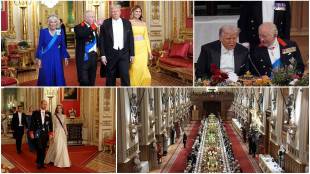A beach is an unlikely place to discuss literature. But then, it was a serene sunset at a beach where Rabindranath Tagore took inspiration to write the first verses of his Prakritir Pratisodh (Revenge of Nature). The tranquility at the beach in Karwar, Karnataka, had an influence on Tagore’s other writings as well, and today the beach is known as the Rabindranath Tagore beach.
A little south of Karwar, at Kozhikode, formerly known as Calicut, a litfest at the beach attempts to do the same—inspire a love for literature for the lakhs of visitors thronging the venues. It helps that the city has been deemed a city of literature by Unesco recently, and is home to over 500 libraries. In fact, community participation is what Ravi Deecee, the chief facilitator of the Kerala Literature Festival, attributes the success of the litfest to.
Home to over 70 publishing houses, and authors like Vaikkom Mohammed Basheer, SK Pottakkaatt, MT Vasudevan Nair, Thikkodiyan, NP Mohammed and Balamani Amma, the written word has a deep imprint on the city and its natives. Making reading inclusive to all, the city has the country’s first literary gender initiative in a Gender Library housed within a Gender Park. The library boasts of an extensive collection of books and publications on gender rights, feminist literature, transgender experiences and other studies on gender. At the Abussabah Library, the central library of Farook College, over 150 volumes are in Braille alone, besides a good selection of audio-visual aids to consume literature.
The city proudly celebrates its writers through the PA Lalitha Award, the SK Pottekkatt Literature Award and the Mathrubhumi Literary Award. The Beypore Art, Craft, Tourism, and Literature Festival, which runs for over a month in the city, commemorates the birth of famous local author Vaikom Muhammad Basheer, a seminal figure in Indian literature.
So when the DC Foundation started the Kerala Litfest, Kozhikode was a natural choice.
Says author and politician Shashi Tharoor: “Kerala is a hospitable place for literature. I’ve been a patron of the Kerala Literature Festival from its inception and a speaker at each edition. Kozhikode is a deeply cultured city, a mélange of influences, and its centuries-old connections to the outside world make it cosmopolitan. It’s also where Vasco da Gama landed in the 1490s. Kerala is full of highly literate people who love literature and have set high standards for the written word.”
Now in its eighth year, the Kerala Literature Festival claims to be the biggest in Asia, drawing over six lakh visitors, a growth again credited to the strong connection with the community. Says eminent author K Satchidanandan, also the festival director: “Kozhikode has always been a great centre of various arts like music and drama, and of education, hosting many colleges and a university. Now it has been recognised by Unesco as a City of Literature, the first in India. This festival is also one of the reasons for this recognition. The city has given birth to or has been the dwelling place of several major writers, and younger ones as well. It is also the headquarters of several dailies, weeklies, and little magazines devoted to avant-garde writing. There are thousands of discriminating readers of literature here, and thus a natural audience for a literary festival.”
Adds Deecee: “The festival was conceived as a platform to celebrate the power of words and ideas, bringing together diverse voices from literature, art, culture, politics, and science. The aim was to create an open, democratic space where people from all walks of life could engage in meaningful conversations, break boundaries, and explore new perspectives.”
New perspectives, indeed. This year’s festival has over 300 sessions on diverse issues. Like, what are the GenZ reading? Or is marriage an outdated concept? Brain rot, storytelling in today’s tech age, politics, gender, and more are discussed threadbare with a lineup of as many as six Booker Prize-winning authors, besides a host of thinkers, authors and luminaries, both Indian and foreign.
Fest director Satchidanandan adds: “The first edition in 2016 attracted a huge audience as it allowed readers to meet their favourite authors. They could not only listen to them but also interact with them. It is held on the open beach, being open for all. People find the beach a natural and comfortable gathering place. And, if the first edition was mostly attended by people from Kerala, now the audience consists of a cross-section of Indians.”
So while Kozhikode is labelled a tier-2 city, it clearly rises above many others in celebrating the written word.








